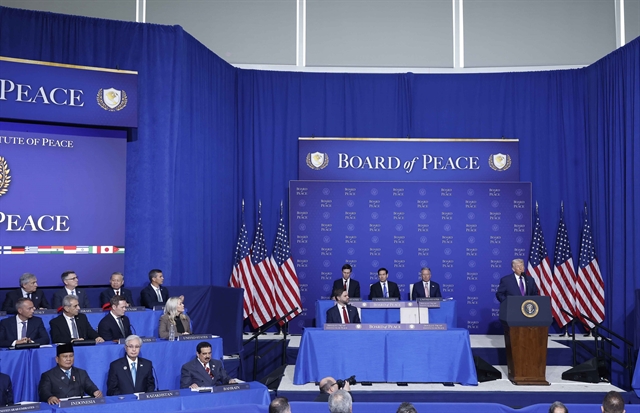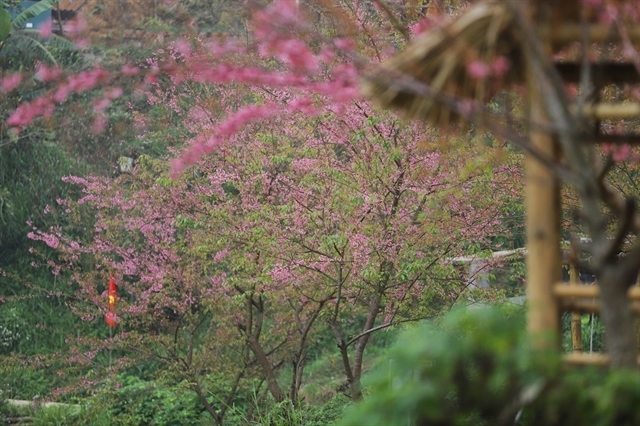 Features
Features
.jpg)
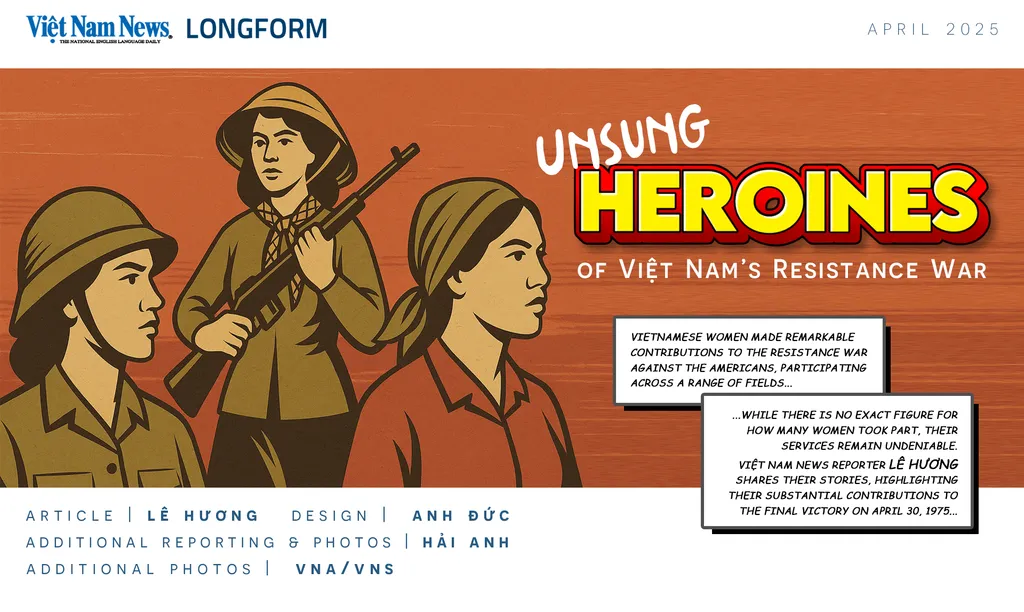 |
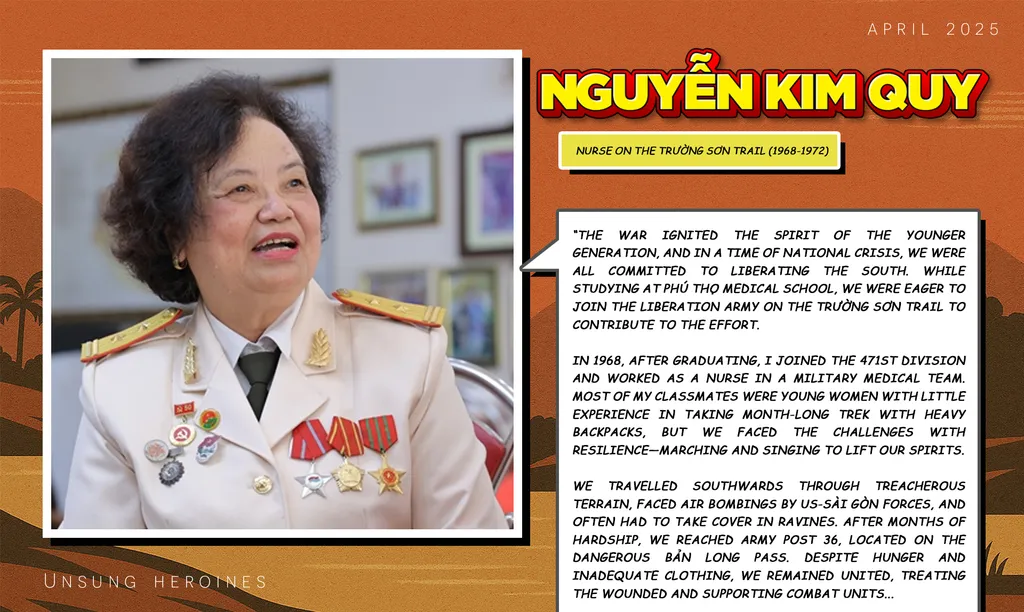 |
As medics, we didn’t carry weapons, but our skills were equally vital. We treated liberation soldiers from the North, civilians, and even supported the Laotian people, forging strong bonds and mutual respect. Our comrades appreciated our work, often sending small gifts to encourage us.
Though we missed home, we took part in every task—from digging trenches to caring for the wounded. In 1969, I was recognised as an exemplary army medic. I never imagined I would endure such hardship, but I’m proud of the role I played in the country’s liberation cause.
The joy of victory on April 30, 1975, was overwhelming. We had secured independence, and the people could finally live in peace. Today, as the country continues to grow, I feel privileged to have been part of such a historic era.
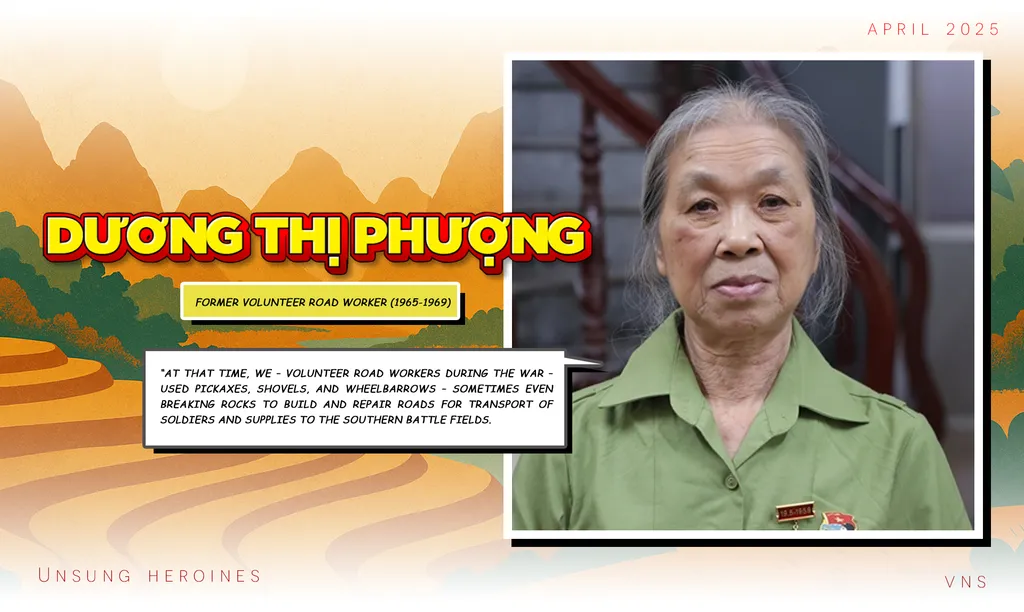 |
Our hands became calloused and stiff. Our hair and faces were messy, and our skin darkened—not just from the Quảng Trị sun-heat but from the harsh dry winds blowing from Laos that cut through us.
As women, we could only dream of having soap or basic hygiene items when we had a period. Nothing was available, and we had to make do with whatever little we had. We longed for the simplest comforts, like a bar of soap, to maintain basic personal hygiene.
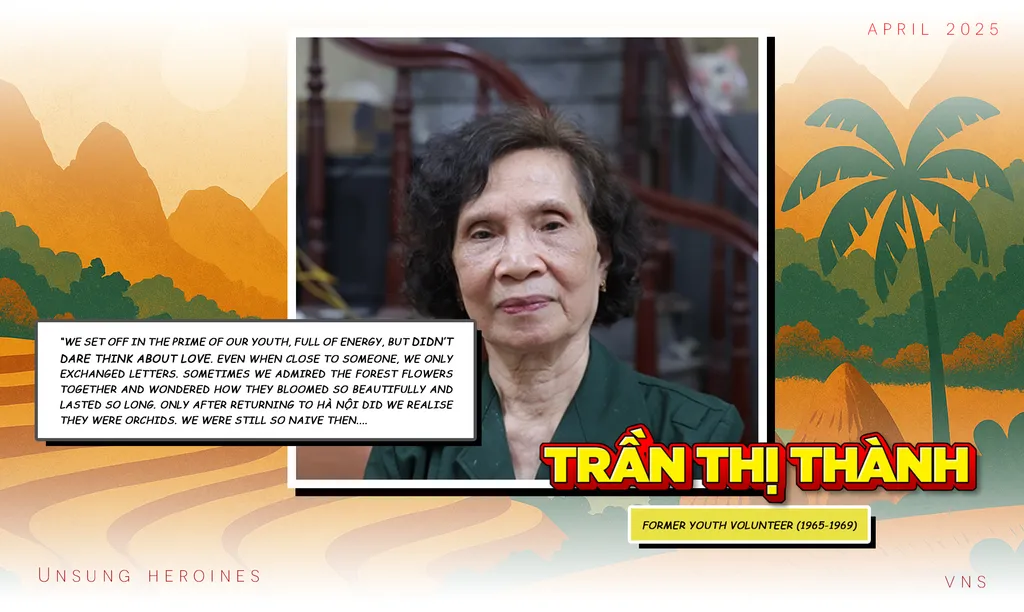 |
We didn’t even think about love. Maybe there were moments when we had a little crush, but we reminded ourselves that we were on the battlefield. The only thing in our minds was pressing forward to help liberate the South.
Looking back, I feel that the path I chose, the one I volunteered for, was meaningful and right. Even now, in old age, I tell my children and grandchildren that if given the chance to help on an island or elsewhere, I would still volunteer.
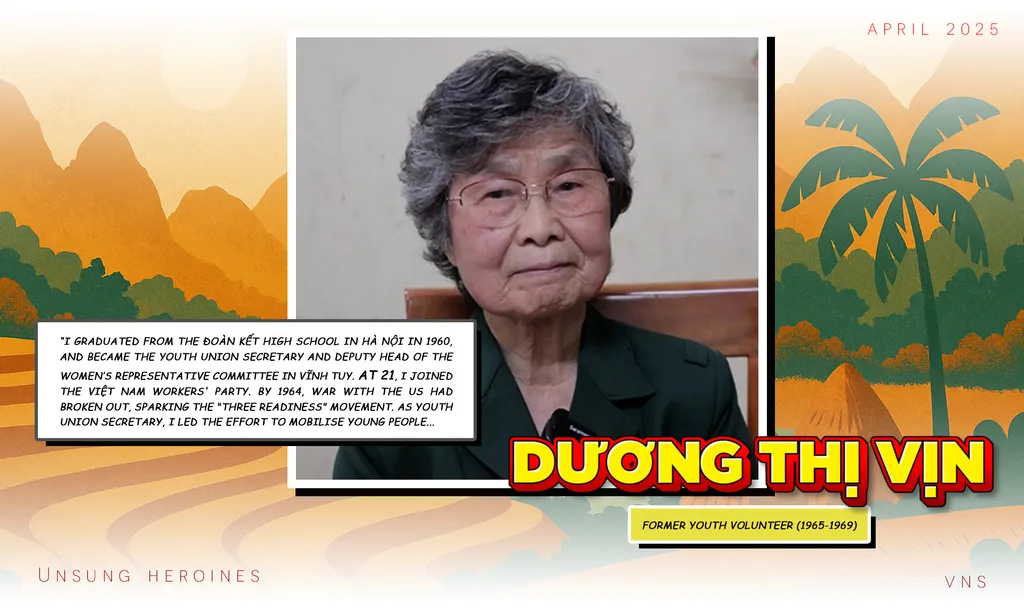 |
There was a critical shortage of recruits, yet nearly 10,000 applications were submitted for just 1,500 positions. Young people were eager to join the fight; many girls, even as young as 14, lied about their age to enlist.
Though I received a university admission letter, I chose to join the youth volunteers. With my father’s support, I left with 12 others. We started as road construction workers on Route 15, later moving to Route 21 in Quảng Bình.
Conditions were harsh, with food shortages and frequent US air bombings. But morale remained strong. We shared food, letters, and laughter. Even during tough times, we organised cultural activities in air raid shelters.
I witnessed the horrors of war. I came to terms with the possibility of death, knowing our sacrifices were for national reunification.
Today, I’m proud of the role we played. Peace came at great cost, and I honour the memory of those who gave their lives for the national cause.
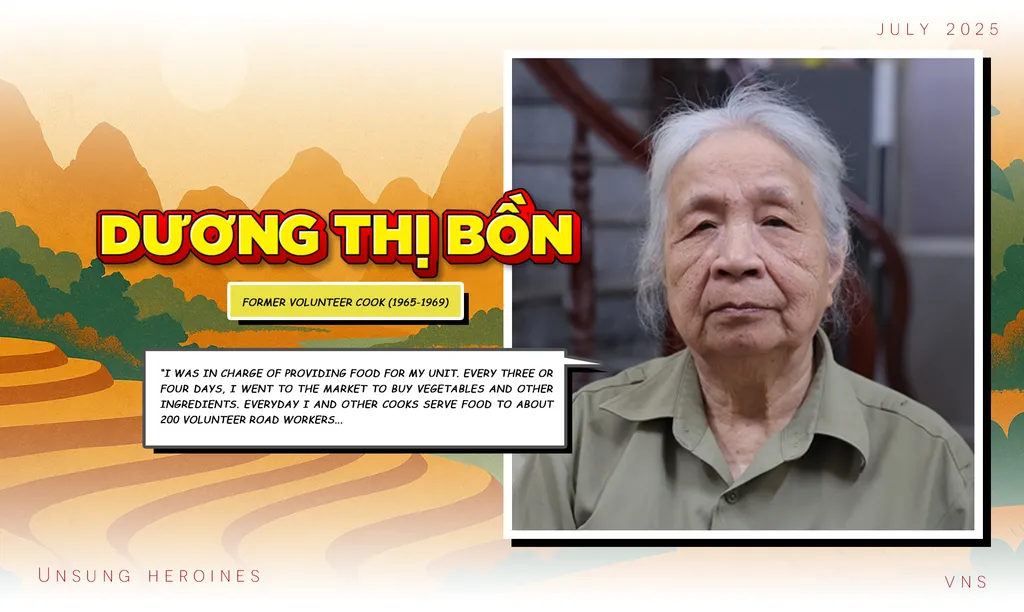 |
The threat of American bombs was constant. Rockets were fired all the time. But the scariest thing was the thought that if fate was not kind to me on the way, no one would know where I was–and my family might never find my body. That fear stayed with me for quite a long time.
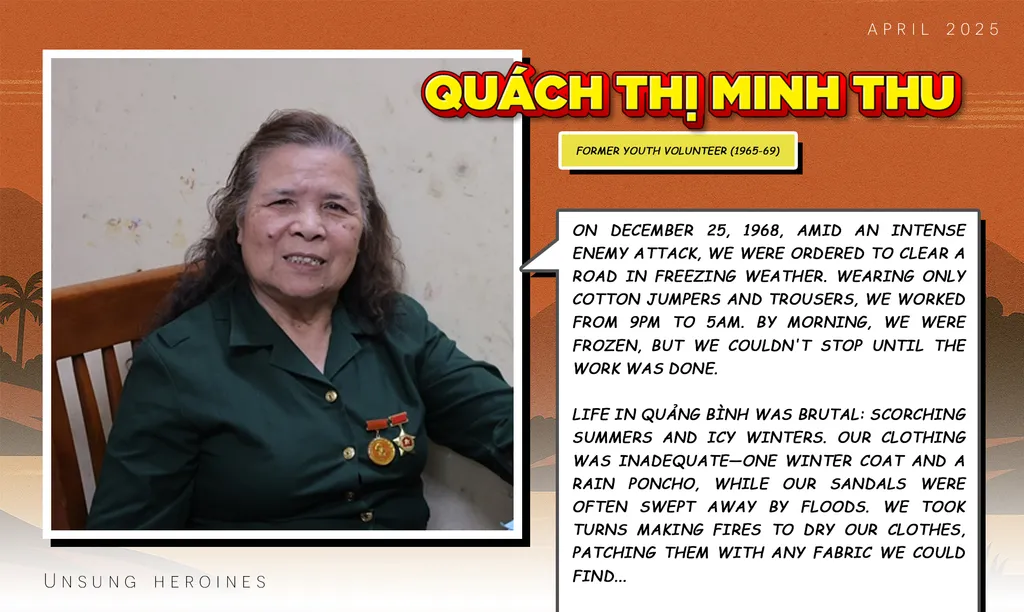 |
Women faced additional hardship. We had no proper hygiene products, even soap, to deal with our period. Sometimes we had to walk one or two hours to a stream, unable to clean ourselves properly.
Despite it all, we found joy in cultural performances. On significant dates we staged skits and dances, using army uniforms and paper as costumes. Patriotic songs lifted our spirits and helped us endure the battlefield.
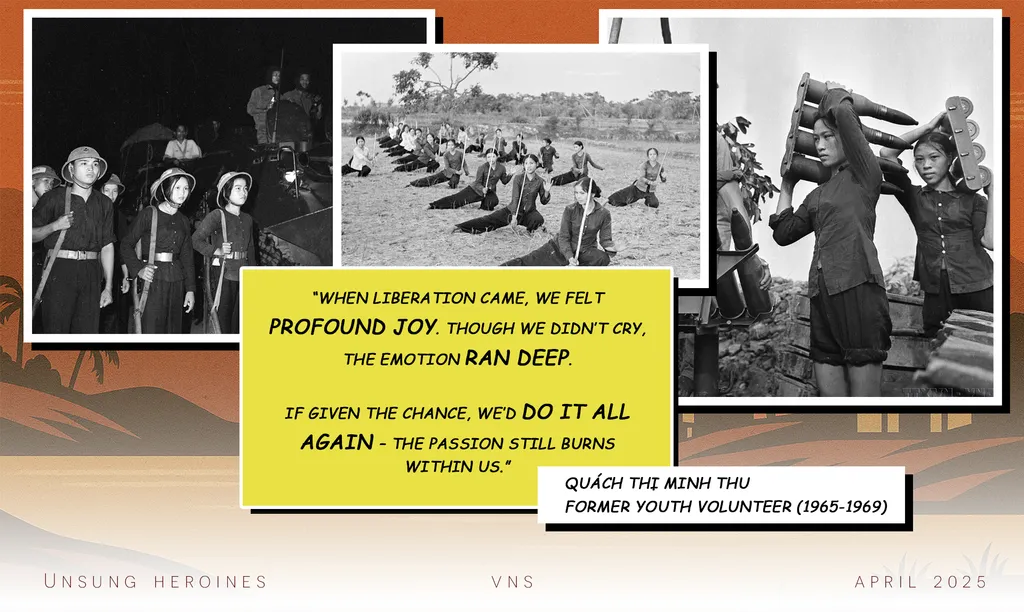 |
.jpg)
